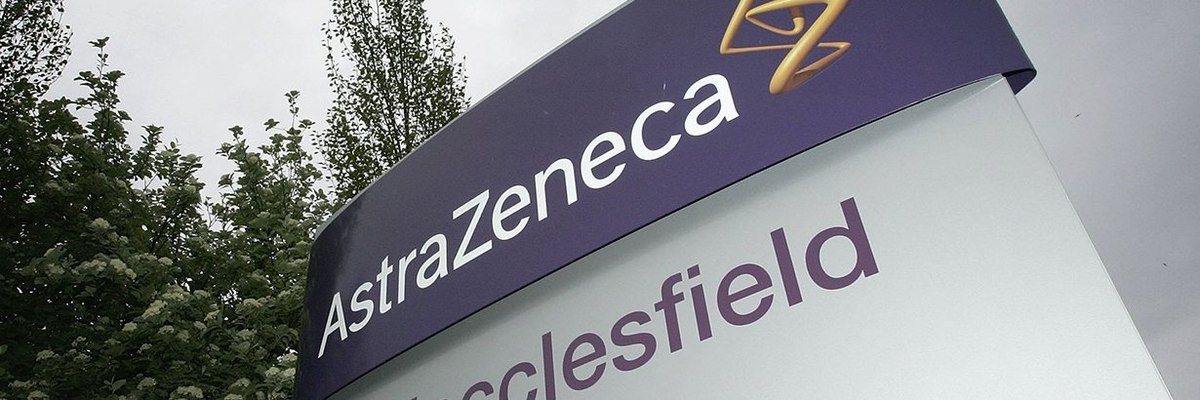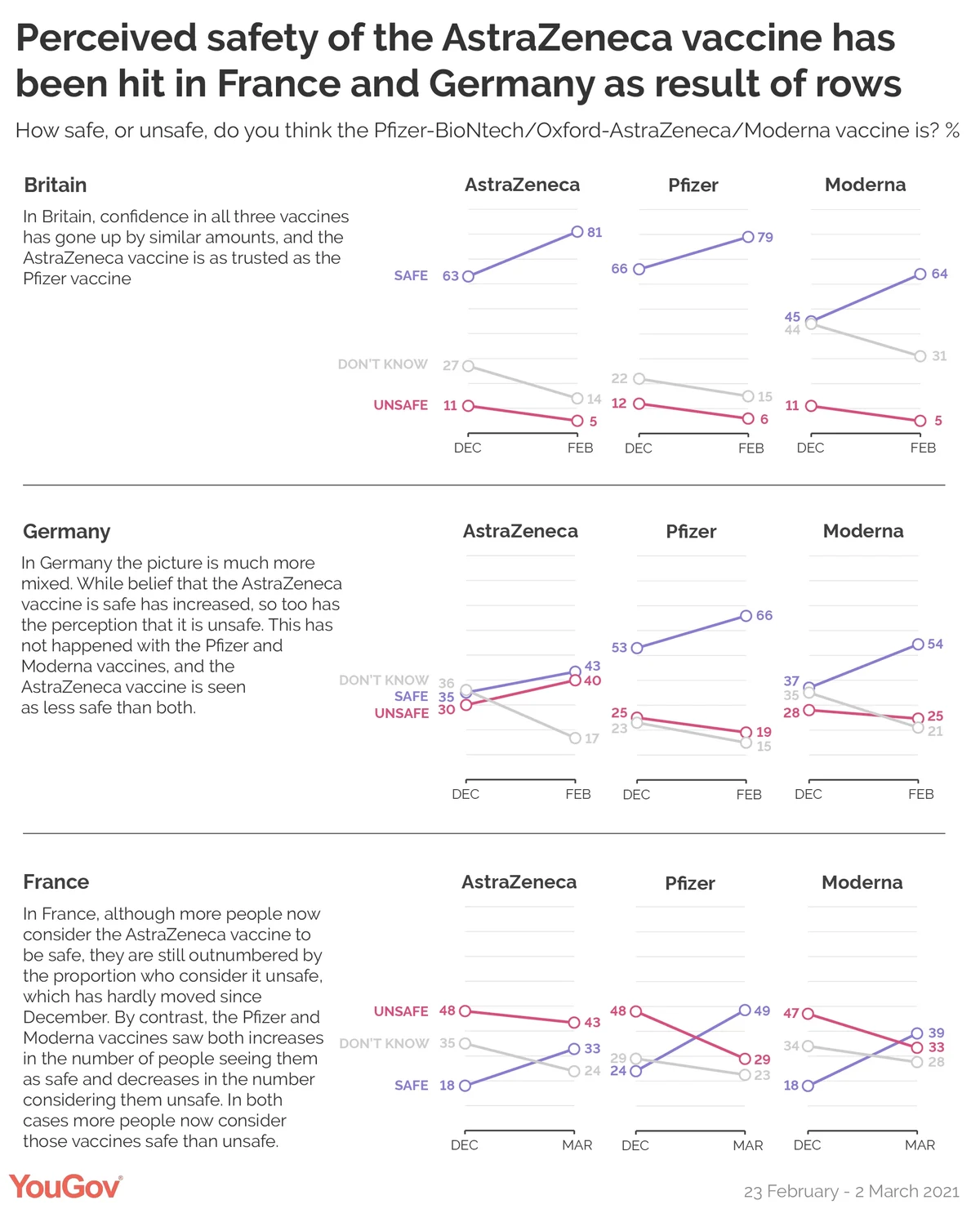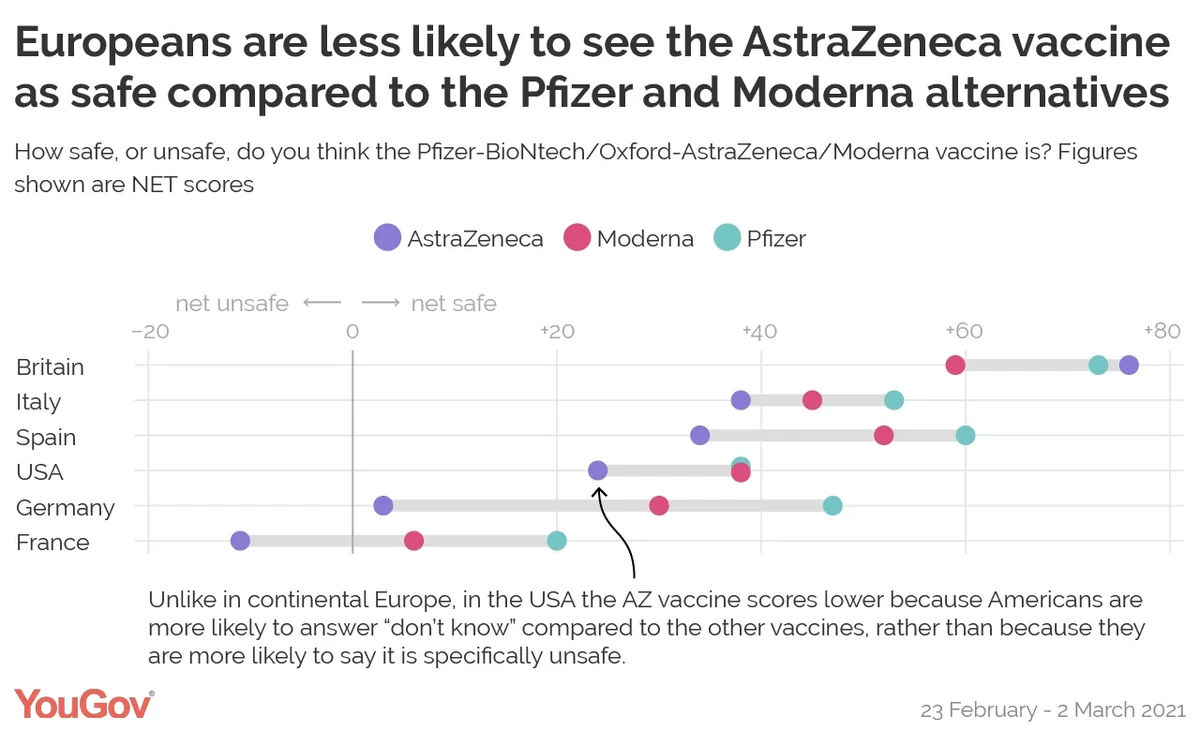
Extent of damage to AstraZeneca vaccine’s perceived safety in Europe revealed
A new YouGov survey shows that the vaccine is lagging behind Pfizer and Moderna alternatives in Europe, where in the UK it is seen as equally safe
Following the spat between the EU and Britain over supplies of the AstraZeneca COVID-19 vaccine, there seems to have something of a campaign to damage the reputation of the vaccine on the continent.
German newspaper Handelsblatt, having been briefed by “members of the governing coalition”, published a prominent article saying the AZ vaccine was only 8% effective among the over-65s, a claim that would soon be debunked.
The German national vaccine committee refused to approve the AstraZeneca vaccine for the over-65s, only did so at the beginning of March. The same happened in France. Anecdotal reports have emerged across the continent of people refusing to take the vaccine, amid stories that supplies of the jab are sitting untouched in warehouses.
Now a new YouGov survey shows the extent of the damage done to the perceived safety of AstraZeneca vaccine.
In Britain perceptions of the AstraZeneca vaccine’s safety have improved at the same rate as the Pfizer and Moderna equivalents, but on the continent it has failed to make the same gains
In the UK, the Pfizer and AstraZeneca vaccines are seen as equally safe: 79% say the Pfizer vaccine is safe, and 81% say the same of the AZ vaccine. In both cases this represents an improvement from the previous time we asked the question in December – up from 66% in the case of Pfizer and from 63% in the case of AstraZeneca. The Moderna vaccine is seen as safe by 64% - while this figure is lower, the vaccine is no more likely to be seen as actively unsafe (all three vaccines score 5-6% on this measure), with Britons instead much more likely to say they don’t know (31%, vs 14-15%).
In other European countries, however, there is a stark difference between attitudes AstraZeneca compared to the other two vaccines.
In Germany, the proportion of people who think the Pfizer vaccine is safe has risen from 53% in December to 66% now. At the same time, the number who think it is unsafe has fallen from 25% to 19%. Over the same time period, the safety figure for the Moderna vaccine has risen from 37% to 54%, with the number of unsafe perceptions has stayed about the same (25%, compared to 28% in December).
But when it comes to the AstraZeneca vaccine, while the number considering it safe has risen from 35% to 43%, this is coupled with an increase in the number believing it to be unsafe, from 30% to 40%.
In France, the Pfizer and Moderna vaccines have both seen significant increases in the number of people believing them to be safe, coupled with similar decreases in the number who consider them unsafe. As a result, the ‘safe’ figures have overtaken the ‘unsafe’ figures for both vaccines.
While the AstraZeneca vaccine has also seen a 15pt increase in the number considering it safe (from 18% to 33%), this has not been coupled with much of a reduction in the number seeing it as unsafe (43%, down from 48%). Unlike the other two vaccines, people are still more likely to believe the AstraZeneca vaccine to be unsafe than safe.

This latest survey has also been conducted in additional countries to the first: Spain, Italy and the United States. In all three countries the AstraZeneca vaccine is less likely to be seen as safe than either the Moderna or Pfizer vaccines, although in the US this is because of a higher rate of “don’t know” responses, with the number of Americans considering it to be actively unsafe the same as for the other two vaccines (17-18%).

Between one in four and one in five would refuse AstraZeneca vaccine in Europe
As a result of such concerns, Europeans are substantially more likely to say they would refuse to take the AstraZeneca vaccine than the Pfizer and Moderna vaccines.
In Germany, for instance, more than a quarter of Germans (27%) said they would refuse the AZ vaccine and wait for another. Just 12% say the same of Moderna, and only 6% of Pfizer.
The difference is far less marked in the US (11% vs 7-8%), and non-existent in the UK. This holds true when looking only at those in each country who are yet to be vaccinated.